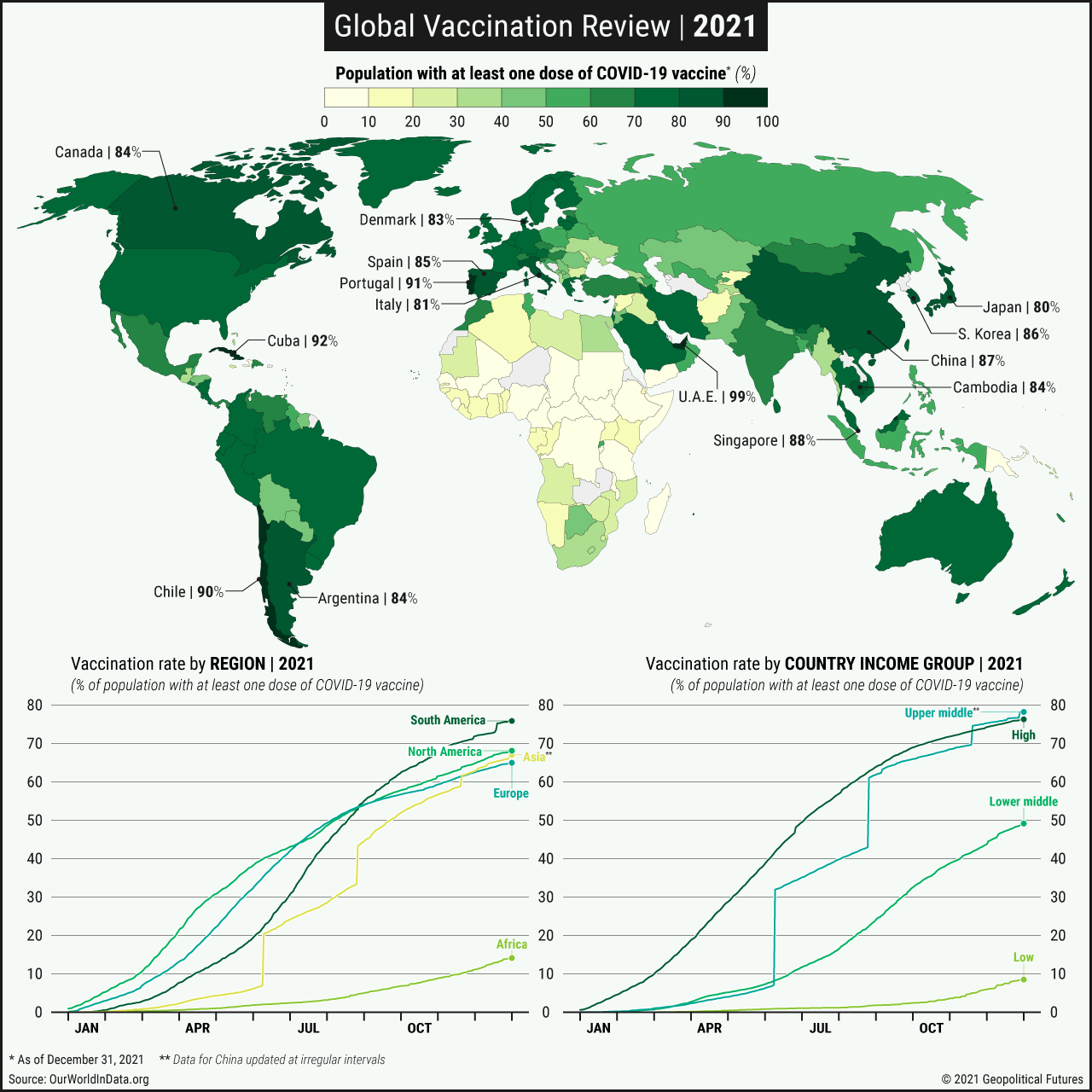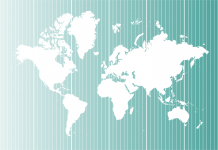We’re two years into the pandemic, but in many ways the start of 2022 feels very similar to the start of 2021. A holiday-induced wave of COVID-19 is picking up across the globe; restrictions on social activity are in place in many places to varying degrees; and supply chains are suffering from missing or damaged links. One notable difference, however, is the global administration of vaccines against the virus. This difference is critical for facilitating the economic recovery, whose progress varies greatly depending on the country. Unsurprisingly, developed and wealthier economies have higher vaccination rates than the developing world. Many people in North America and Europe are receiving booster shots, while in Africa people have yet to receive even a first dose of the vaccine.
Vaccine access will, in turn, impact countries’ economic performance in 2022. Developing countries could not weather lockdowns in the same way that advanced economies could. Poverty increased in many places, as did the presence of informal labor. Developing countries’ governments also lacked the fiscal bandwidth and institutional strength to throw money at the problem and foster a recovery. Much of the developing world has seen economic and wealth conditions set back a decade or more, and government debt problems are a reminder of the Third World debt crisis of the 1990s. The dual-track recovery will start to show itself more prominently this year.







